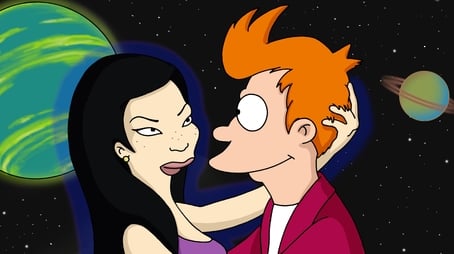
Sorry, we have not watched this yet.

Fry discovers the ability to download any celebrity onto a blank robot, and chooses to download Lucy Liu, with whom he falls madly in love. Repulsed by this disgusting display of human/robot love, Leela, Bender, and Zoidberg set out to shut down Nappster.com and put an end to illegal celebrity downloads forever.
Sorry, we have not watched this yet.